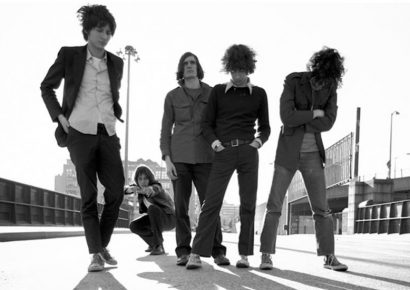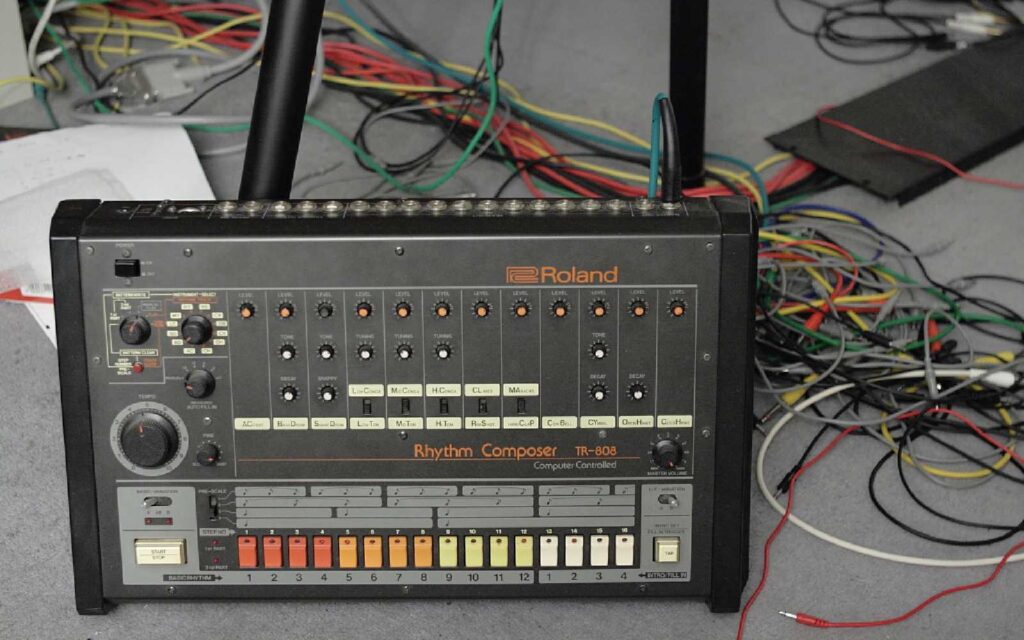Riley would grow to define the sound and reinvigorate contemporary R&B and hip hop, leading to major hits by the likes of Michael Jackson, Blackstreet, Keith Sweat and Bobby Brown. No music is made in a bubble, however, and the tendency to credit Riley with entirely creating the new jack swing sound is a disservice to several notable producers who came before him in the early ‘80s. Before Riley’s dominance of the pop charts, several key records produced by the likes of Minneapolis duo Jimmy Jam and Terry Lewis, perhaps most notably including Janet Jackson’s Control (1986), paved the way.
However, new jack swing, a phrase that would be coined in the headline of a 1987 Village Voice profile piece on Riley by writer Barry Michael Cooper, will always be associated with New York, and specifically Harlem. The ‘new jack’ part of the title was another way of saying ‘new kid on the block/scene’, while use of the word ‘swing’ equated Riley’s productions with the gangster era of 1920’s swing music, marrying the grit of what was occurring on Harlem’s streets with what was happening in the dancehalls.

Teddy Riley in hip-hop group, Guy.
Unlike a lot of hip hop productions at the time, new jack swing utilised heavy drum machine sounds, often using the SP-1200 sampler and Roland TR-808 drum machine with a particularly dominant snare. The programmed hi-hats were often played in 16th note triplets, a particular trademark of Riley’s that gave a distinctive swing to the feel, while additional synthesised percussion was often also featured to add body to the rhythm. Interestingly, while in conversation with the Red Bull Music Academy, Riley revealed that he never used a sequencer to program beats. Instead, he would play along with track, laying the drum machine parts down like any other instrument. “That’s why it took so long for a lot of these records to come out,” said Riley. “‘Cause I didn’t have a sequencer, and when I finally got a sequencer, it didn’t work right for me. It didn’t have the off and on swing that I wanted.”
The result was an onslaught of sound that fused the tough, street image of hip hop with the smooth soul of R&B vocals and keyboards, and made it danceable. While the vocals remained the central focus, the percussive rhythms were so loud in the mix that they emulated the nightclub experience, thus making the records produced by Riley and others a natural crossover success for both clubs and radio.
“I remember listening to records in 1985 and the drum sounds were very poppy and had a lot of reverb,” said Kanye West in a Pop Matters interview. “The records had a 2/4 beat structure to them. They were popular in the music you would hear at clubs during that time. When the new jack swing sound came in, it kicked up the BPMs from 94 to about 105. It was much faster and there was more rhythm, percussion, and movements within the drum tracks.”
Other producers such as Babyface, L.A. Reid, Public Enemy’s Eric Sadler, Hank and Keith Shocklee, Denzil Foster and Thomas McElroy began to score hits with the new sound for artists such as Bobby Brown, Color Me Badd, Tony! Toni! Toné! and Bell Biv DeVoe.
“What made it new jack swing was the snare,” said Hank Shocklee to the Red Bull Music Academy. “The snare had to be loud and obnoxious and not in tune with the rest of the stuff. That made it stand out.”
1991 was a major year for Riley, who was asked by Quincy Jones to work on Michael Jackson’s Dangerous album, for which he would ultimately produce half of the songs, including ‘Remember the Time’, ‘Jam’ and ‘In the Closet’, and win a Grammy award for Best Engineered Album (Non-Classical).
In the same year, Riley formed a new group, Blackstreet, although it wasn’t until the release of their second album in 1996 that he would score one of his biggest hits with ‘No Diggity’. That single signified a shift in Riley’s sound, which wisely reflected the changing tastes of the times, and to many represented the end of the new jack swing era.

Blackstreet.
More recently, Riley has found success in applying the new jack swing process to the K-Pop industry in Korea, where he moved to work for several years, scoring a hit for Girls’ Generation with their first international single ‘The Boys’ in 2013. “All I did was bring new jack swing and merged it together [with K-Pop], and that’s how we got ten number ones,” he told Fact Magazine.
These days, the legacy of new jack swing can be heard once again in the pop charts, though many won’t have recognised it. “All these people that are marrying singing with rap or making a song that’s a rap song into a singing song? That’s new jack swing,” said Riley to Rolling Stone. “You have Bruno Mars, you have Drake, you hear Pitbull? That’s all considered new jack swing.”







